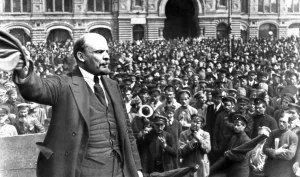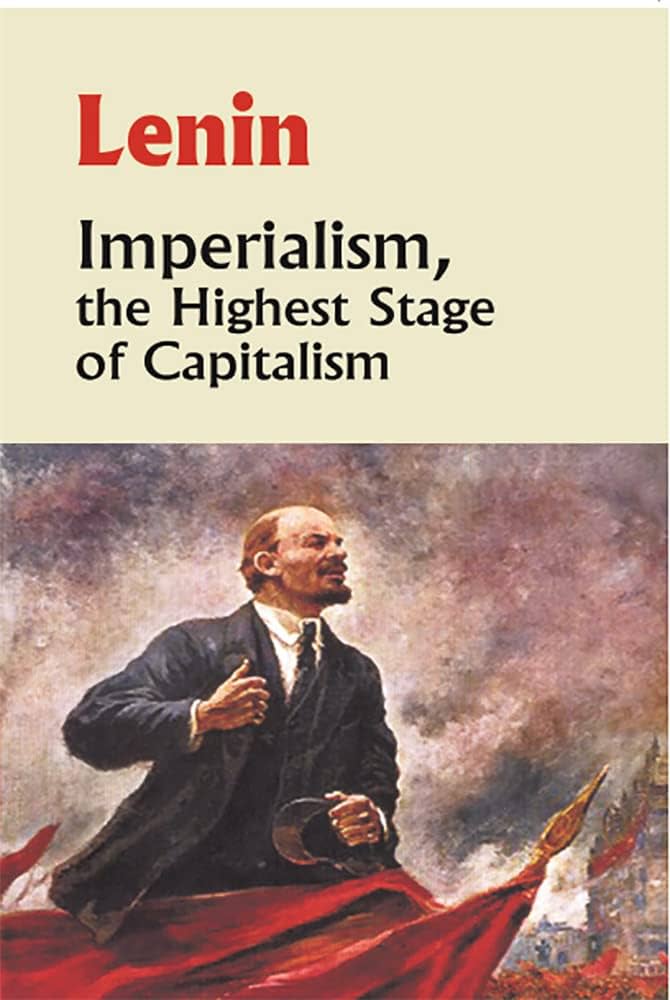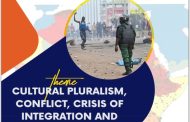By Prof W. o. Alli
I welcome you all to this historic Conference to mark the centenary of the passing away of one of the greatest revolutionaries of the Twentieth Century, Vladimir Ilyich Lenin, the founding leader of the Union of Soviet Socialist Republic, (USSR). This conference is a testimony to the enduring legacy of Lenin as a great revolutionary leader, thinker and strategist.
He was a very brilliant student who finished a four-year law programme in one year and came out on top in 1891. He was a great writer and a great organiser. He became the leader of the Russian Social Democratic and Labour Party (RSDLP), the Bolsheviks, which organized the Great October Socialist Revolution in Russia in October 1917. The party later became the Communist Party of the Soviet Union (CPSU).

Lenin, the politician’s politician at work
A major factor in the legacy of Lenin is the fact that he translated Marxism into a credible framework for building a new socialist society. Lenin left a legacy of good governance through the Dictatorship of the Proletariat, laying the foundation for the global confrontation with imperialism, global capitalism and colonialism and the ideological contestation in the world, through the First and Second World Wars, and the subsequent struggle for the emancipation of people and nations oppressed by imperialism. Even now in the Twenty-First Century, the ideas of Lenin, encapsulated in Marxism-Leninism still drives and inform political and ideological debates, providing the framework, clarity and energy required for the liberation of oppressed people all over world. Marxism Leninism provides inspiration and theoretical guidelines for the African Liberation Movements in Angola, Mozambique, Guinea Bissau, Cape Verde, South Africa, Zimbabwe and many other countries in Africa; China and Vietnam, Korea and other nations in Asia; and Cuba, Venezuela and other nations in Latin America.
Lenin’s initiative in planning a socialist economy and collectivization of agricultural production, the introduction of free education and free health care remain a principled element in socialist economic planning, which became a standard fixture of progressive socio-economic development plans of most developing countries. Equally important was the drive for infrastructural development. This was particularly important for the impoverished Russian peasants, who suffered neglect and lived in abject poverty under the Tsars and the Russian bourgeoisie after the overthrow of the Tsarist regime in February 1917. Accordingly, the argument was that the success of Soviet Power (Sovietskaya Vlast) or the dictatorship of the proletariat would be found in the provision of infrastructure particularly “electrification of all Russia”!
Of course, many of these initiatives have been appropriated by capitalist oriented political parties ad regimes, which then turned around to emasculate the policies of their pro-people contents and potency Notwithstanding, as the world moves from one phase to another, the key elements of Leninism to me, remains the satisfaction of the socioeconomic needs and political aspirations of the people.
The building of a socialist society in the USSR and in other countries with the prospect of transition to communism, in a world dominated by imperialism was a major challenge. The US and its allies organized all manner of offensives including national liberation wars in Korea, China, Cuba, promoted Apartheid South Africa, imperialist wars in Angola, Mozambique, Algeria, Somalia, Vietnam, Namibia, Zimbabwe; Iraq, Afghanistan, and in other places; the arms race, the Cold War, NATO and Warsaw Pact and other intrigues. The USSR collapsed in 1990 and also the World Socialist Movement dissolved thereafter. Russia became the successor state to the USSR. However, Triumphalist imperialism claimed victory. Hence the continued assault of imperialism on Russia. Ukraine-Russia War, Israeli war on the Palestinians, North Korea and South Korea tension all speak of the critical role of a global opposition to imperialism the foundation of which was laid by Lenin.
This conference is offering us an opportunity to review the state of our nation, the grand socio-economic crisis, the high level of unemployment, the high level of poverty, the frustration and desperation among the people, the frightening scale of insecurity, and an atmosphere of desperation and suffocating misery now expressed in a growing wave of suicide in the society, compounded by growing criminality, deterioration of civility and good order, and the huge crisis facing our youth now sold on materialism and money. Meanwhile, the ruling class live in obscene affluence squandering our patrimony on debauchery and the indecent glorification of meaningless anniversaries.
Before our eyes, the Nigerian state has failed and our nation has collapsed. This conference is therefore coming at a critical time offering us the opportunity for deeper reflection on the way forward, learning again about the trajectory of the Leninist framework for the transformation of a society that has lost its way. This is not a time for intellectual arrogance, that my Marxism-Leninism is better and deeper and more theoretically sound than yours. This is a time for coming together and putting on the Leninist thinking cap. I hope that as we deliberate on the legacy of Lenin, we will find inspiration in his many works. I will particularly suggest the book What is to be Done published in 1902, at a time of much confusion in the emerging party. We can also learn from his legendary work in building the Communist Party of the Soviet Union and the construction of the Union of the Soviet Socialist Republic.
Comrades, Distinguished Ladies and gentlemen, I welcome you all.
This is the full text of the Welcome Address at the Lenin International Centenary Conference, Abuja, 22 January, 2024. The author, a retired Professor of Political Science and former Director of Research at NIIA, trained in the defunct USSR.




























